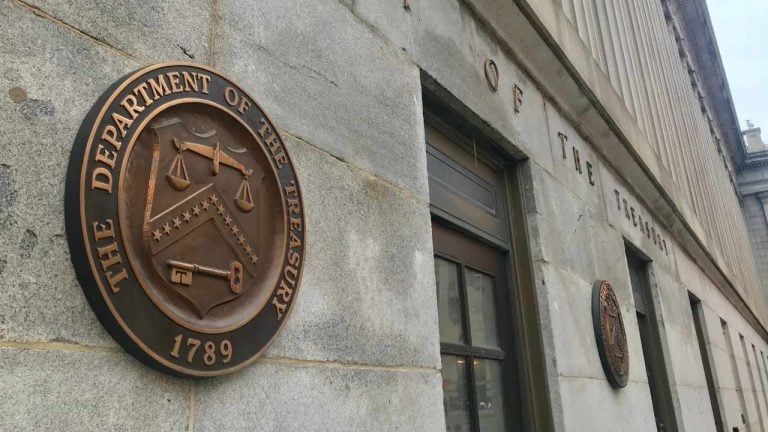 Sergey Lavrov, the Russian foreign minister, started his tour of Latin America on April 17, landing first in Brasilia to hold high-level talks with Brazilian President Luiz Inacio ‘Lula’ da Silva and Brazilian Foreign Minister Mauro Vieira. Lavrov insisted that Russia was building a “multipolar” world, while Vieira rejected the unilateral sanctions enacted against Russia. […]
Sergey Lavrov, the Russian foreign minister, started his tour of Latin America on April 17, landing first in Brasilia to hold high-level talks with Brazilian President Luiz Inacio ‘Lula’ da Silva and Brazilian Foreign Minister Mauro Vieira. Lavrov insisted that Russia was building a “multipolar” world, while Vieira rejected the unilateral sanctions enacted against Russia. […] U.S. Treasury Secretary Janet Yellen talked about the dangers that sanctions based on the U.S. dollar might pose for the hegemony of the currency in international markets. According to Yellen, the government tries to use sanctions “judiciously,” as they can create a desire to find alternatives to the U.S. dollar. U.S. Treasury Secretary Yellen Talks […]
U.S. Treasury Secretary Janet Yellen talked about the dangers that sanctions based on the U.S. dollar might pose for the hegemony of the currency in international markets. According to Yellen, the government tries to use sanctions “judiciously,” as they can create a desire to find alternatives to the U.S. dollar. U.S. Treasury Secretary Yellen Talks […] The government of China protested the enactment of sanctions on a series of national companies by the U.S., barring them from doing business with U.S.-based entities for allegedly collaborating with Russia. China’s Commerce Ministry criticized the move, saying it is a “typical form of long-arm jurisdiction,” which damages the rights and interests of these companies. […]
The government of China protested the enactment of sanctions on a series of national companies by the U.S., barring them from doing business with U.S.-based entities for allegedly collaborating with Russia. China’s Commerce Ministry criticized the move, saying it is a “typical form of long-arm jurisdiction,” which damages the rights and interests of these companies. […]
A nonprofit organization dedicated to crypto advocacy is filing an amicus brief in support of the banned crypto mixer Tornado Cash. In a new announcement, the Blockchain Association says that it has filed an amicus brief in the Office of Foreign Assets Control’s (OFAC) lawsuit against Tornado Cash, saying that the token mixer is “simply […]
The post Blockchain Association Shows Support for Banned Tornado Cash in New Amicus Brief Filing appeared first on The Daily Hodl.

The motion is part of a broader effort to restore internet privacy rights for U.S. citizens.
The United States Treasury faces a renewed legal challenge that aims to overturn the decision to sanction the crypto mixer Tornado Cash from six individuals backed by cryptocurrency exchange Coinbase.
A motion for a partial summary judgment was filed on April 5 in a Texas District Court, the Coinbase-backed plaintiffs moved for the U.S. Office of Foreign Asset Control (OFAC) to settle for the first two counts from its original complaint filed in September 2022.
If granted, it would see the Judge rule on some of the factual issues while leaving others for the trial.
The counts claimed OFAC exceeded its statutory powers under the International Emergency Economic Powers Act (IEEPA) and violated the Free Speech clause under the U.S. Constitution’s First Amendment.
A few months ago, Coinbase backed a legal challenge to sanctions imposed by the US govt against Tornado Cash. Today the plaintiffs filed a motion for summary judgment, asking the court to reopen TC for all. Their arguments are simple but powerful. 1/10 https://t.co/xSngWKxM3x
— paulgrewal.eth (@iampaulgrewal) April 5, 2023
The plaintiffs firstly claimed OFAC breached a section of the IEEPA that allows the Treasury to take action against the property in which a foreign country or foreign national has an interest.
The motion argued that as the provision only allows the pursuit of property-related action against a foreign “national” or “person,” it doesn’t apply to open-source software.
To strengthen its claim, the plaintiffs argued the 20 or so smart contracts that provide the functionality to Tornado Cash should not be considered property under IEEPA because they cannot be owned:
“An immutable smart contract is incapable of being owned, it is not property and the Department lacks authority under IEEPA and the North Korea Act to prohibit transactions with those smart contracts.”
“No one has the right to alter them. No one has the right to delete them,” they added.
The second main argument put forth is that by banning the open-source code, OFAC is violating the Free Speech Clause of the First Amendment under the U.S. Constitution.
Related: Treasury officials would have done more for national security by leaving Tornado Cash alone
The plaintiffs noted OFAC has authority to take action against “crypto thieves” like North Korea’s Lazarus Group, but a “total prohibition is thus grossly disproportionate” as money laundering only accounted for 0.05% of crypto transactions in 2021.
“To ban all uses of Tornado Cash is akin to banning the printing press because a tiny fraction of users might publish instructions on how to build a nuclear weapon,” they added.
The motivation behind the motion is part of a broader effort to restore internet privacy rights for U.S. citizens, the plaintiffs explained. It is the most recent filing since the individuals first sued the U.S. Department of Treasury in September.
The six plaintiffs behind the filing are Joseph Van Loon, Tyler Almeida. Alexander Fisher, Preston Van Loon, Kevin Vitale and Nate Welch. The filing details most of the group had previously interacted with Tornado Cash.
The legal battle comes as Alexey Pertsev, the creator of Tornado Cash, faces his own in The Netherlands. He has been held since Aug. 18 on a series of money laundering charges.
Magazine: Unstablecoins: Depegging, bank runs and other risks loom
 Its been 105 days since Ethereum transitioned from a proof-of-work (PoW) blockchain to a proof-of-stake (PoS) network and the number of Ethereum validators is set to surpass 500,000 in 2023. According to metrics, Ethereum’s issuance rate of new coins has dropped considerably and only 4,790.45 ether has been minted since The Merge took place on […]
Its been 105 days since Ethereum transitioned from a proof-of-work (PoW) blockchain to a proof-of-stake (PoS) network and the number of Ethereum validators is set to surpass 500,000 in 2023. According to metrics, Ethereum’s issuance rate of new coins has dropped considerably and only 4,790.45 ether has been minted since The Merge took place on […]
Tornado Cash contributes to our national security interests more than it undermines them.
One of the most powerful moments in a new crypto user’s journey happens the first time they send a sizable amount of money to their private wallet. It’s an awe-inspiring, serious moment — and it’s a little scary to experience the power and personal responsibility of the technology firsthand with your own real money.
A second powerful moment occurs when the same user is introduced to a block explorer, looks up their address and sees that same transaction there on the blockchain for all to see.
There are competing visions of what Bitcoin (BTC), Ether (ETH) and other cryptocurrencies will achieve. They may be the future of gold, payments, currency or bank accounts. But no matter your crypto vision, none can work without achieving the same level of privacy enjoyed by cash or, at a minimum, credit cards. While credit card companies conduct unparalleled surveillance on our financial life, at least our transactions are not viewable on a public ledger.
There are a number of tools to achieve privacy available in crypto, from privacy coins to mixers and conjoining transactions on the Bitcoin blockchain. These tools are used by everyday users, and in some cases, they are used by bad actors — just like cash. Or to be more precise, crypto and crypto privacy tools are used by criminals with less frequency than cash.
Crypto is safer than fiat.
— CZ Binance (@cz_binance) May 6, 2022
Chainalysis: Transactions involving illicit addresses represented just 0.15% of cryptocurrency transaction volume in 2021.
United Nations: estimated money laundered globally in one year is 2-5% of global GDP, or $800B - $2 trillion in USD.
Sources
The United States Treasury Department’s Office of Foreign Assets Control sanctioned one particular project, Tornado Cash, that was the most effective privacy tool on Ethereum. Much has been written about the sanction and the threat represented by sanctioning code as speech, and two lawsuits have been filed to push back against OFAC’s efforts.
What has been lost in the FTX drama over the last few weeks is the deft maneuvering that OFAC has engaged in to improve its strategic position in the litigation. On Nov. 8, OFAC “redesignated” Tornado Cash “on the basis of new information.”
Two significant legal challenges brought forward a few weeks prior that poked holes in OFAC’s designation are the likely source of the “new information.” OFAC can only sanction groups, not computer code, and OFAC seems to be pushing a novel theory in its second designation that the decentralized autonomous organization around Tornado Cash was part of a group, even though the DAO had no power to change the code since the admin key was burned.
Supporters of the designation argue it was overall a fair trade to achieve national security goals. The stated reason for the designation was that Tornado Cash “obfuscated the movement of over $455 million stolen in March 2022” by North Korean hackers.
But did it really? Privacy tools require a large anonymity set to work. That’s the only way that small transactions by ordinary users can hide in a large crowd. And it works only if privacy tools are used correctly, without privacy mistakes like making mirror transfers into and out of shielded assets within a short timeframe.
Related: My story of telling the SEC ‘I told you so’ on FTX
Consider that when North Korean hackers made that specific transfer, it represented 20% of the entire Tornado Cash pool. The sheer volume of ETH North Korea was trying to move through the Tornado Cash protocol meant that it wasn’t obtaining any meaningful privacy by using the tool. It evokes a comical vision of Godzilla trying to cover himself with a fig leaf.
The Treasury Department would have achieved more for national security by allowing North Korean hackers to maintain a false sense of confidence and continue using the tool while it surveilled their transactions using statistical tracing analysis. What OFAC achieved instead amounts to little more than national security theater.
Meanwhile, it has done real harm to the Ethereum blockchain. One example, as noted by Ethereum co-founder Vitalik Buterin, is that Tornado Cash anonymized donations to support Ukraine. If the Treasury Department’s sanction against Tornado Cash is allowed to stand, it can sanction anything from computer code and applications to specific assets.
Related: Coinbase is fighting back as the SEC closes in on Tornado Cash
Almost as if on cue, former Treasury official Juan Zarate argued in a recent interview that the Treasury Department should use the Patriot Act more “creatively” to sanction entire classes of assets in crypto. It’s a short step from there to sanctioning gold coins or other everyday assets.
Society doesn’t countenance the sanctioning of things merely because criminals happen to use them. Criminals drive on roads. They use tools available at the hardware store. They use these things in furtherance of their crimes.
If OFAC’s vague sanction of “Tornado Cash” is allowed to stand, it can sanction any protocol or asset in crypto. And that threatens to destroy any meaningful vision of crypto’s future.
This article is for general information purposes and is not intended to be and should not be taken as legal or investment advice. The views, thoughts and opinions expressed here are the author’s alone and do not necessarily reflect or represent the views and opinions of Cointelegraph.

The crypto exchange Kraken is settling with the U.S. Treasury Department over apparent violations of sanctions against Iran. The US-based crypto exchange Kraken is agreeing to pay a fine of $362,159 to settle the issue with the Treasury Department’s Office of Foreign Assets Control (OFAC), according to the federal agency. The company will also spend […]
The post Crypto Exchange Kraken Settles With U.S. Treasury Over Violation of Iran Sanctions appeared first on The Daily Hodl.
 Crypto exchange Kraken has settled with the U.S. Department of the Treasury’s Office of Foreign Assets Control (OFAC) over its apparent violations of sanctions against Iran. The cryptocurrency exchange has agreed to remit $362,159 to settle its potential civil liability and invest an additional $100,000 in certain sanctions compliance controls. Kraken Settles With OFAC The […]
Crypto exchange Kraken has settled with the U.S. Department of the Treasury’s Office of Foreign Assets Control (OFAC) over its apparent violations of sanctions against Iran. The cryptocurrency exchange has agreed to remit $362,159 to settle its potential civil liability and invest an additional $100,000 in certain sanctions compliance controls. Kraken Settles With OFAC The […] Since people are once again talking about self-custody as one of crypto’s unique strengths, I would like to remind everyone about an equally important fundamental value proposition of crypto that, in the early days, was touted as the killer feature. I’m talking about censorship resistance. The following opinion editorial was written by Bitcoin.com CEO Dennis […]
Since people are once again talking about self-custody as one of crypto’s unique strengths, I would like to remind everyone about an equally important fundamental value proposition of crypto that, in the early days, was touted as the killer feature. I’m talking about censorship resistance. The following opinion editorial was written by Bitcoin.com CEO Dennis […]